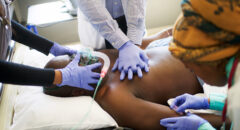
The treatment options for heart failure will vary depending on how badly your heart has been affected. If your heart’s function is significantly affected, your doctor might suggest getting an implant. Since there are different devices available, it’s good to know which one may be right for you.
Who Might Need An Implant
Heart failure is classified into four stages. In the first stage, you’re at risk for heart failure but have no symptoms. The second stage means that you have heart disease but there are no signs of heart failure. In the third stage, there is heart disease and some signs of heart failure. These symptoms can make it difficult to carry out everyday activities. The fourth and final stage means that you have significant heart failure where shortness of breath happens even when you’re at rest. Generally, you’ll need an implant once you get to the third stage of heart failure
Devices That Treat Heart Failure
1. Pacemakers
Pacemakers are usually prescribed if your heart beats too slowly. This device will monitor your heart rate consistently and it sends electrical impulses to keep your heart beating at the optimum speed.
While a pacemaker won’t prevent cardiac events, it ensures that your heartbeat is stable and makes it possible for you to be more physically active.
RELATED: Pacemakers 101: Navigating Your Heart’s New Ally
2. Cardiac Resynchronization Therapy (CRT) Devices
CRT devices are a specialized type of pacemaker designed for people whose left ventricle walls don’t synchronize when pumping blood. These asynchronous movements mean the heart won’t work efficiently.
If you have one of these devices implanted, it will ensure that the walls contract together so your heart works properly. Many people who have this implant live better lives with heart failure. Some CRT devices have an additional benefit of internal monitoring that sends information to your doctor.
3. Implantable Cardioverter Defibrillators (ICDs)
These devices are designed to give the heart varying degrees of electrical shock depending on what’s needed. If your heart is beating too fast, the ICD delivers a small shock to bring the heart rate into a normal range but gives a larger shock if your heart is beating too slowly. It can also shock the heart into beating if it stops. An ICD is best for people who are at high risk of developing an abnormal heart rhythm.
4. CRT-Ds
If your heart failure is at the stage where you need a defibrillator as well as cardiac resynchronization therapy, then you may need a CRT-D device. This kind of device combines the benefits of the CRT and ICD.
5. Ventricular Assist Device (VAD)
VADs are also known as mechanical circulatory support devices. These are meant to help your heart pump blood from the lower part of the heart to the other parts of the body.
In most cases, the device is placed in the lower left chamber of the heart. VADs tend to be implanted in those who are waiting for a heart transplant or who need a transplant but don’t meet the criteria.
6. Pulmonary Artery Pressure Sensors
These sensors are designed for people who need constant blood pressure monitoring. The device will send the information to a monitor in your home, which then sends data to your doctor. Monitoring your blood pressure might be an important aspect of checking the effectiveness of your medical regimen.
RELATED: Types Of Cardiac Procedures For Common Heart Problems
Signs Your Device Needs To Be Checked
While it’s common for devices to be replaced over time, that doesn’t mean they can’t malfunction. For example, a pacemaker’s battery may need to be replaced after five to seven years but the leads may last longer.
Common signs that your device isn’t working correctly include sudden shortness of breath, unexplained fatigue, a cough that gets worse without any obvious cause, and persistent heart palpitations. You should bring any of these issues to your doctor’s attention and be prepared to go to the emergency room if necessary.
Heart failure is a lifelong condition that you need to manage continuously. Implants are one of the ways to do that for people whose heart failure has reached stage three or four. While your doctor will discuss the pros and cons of each device with you, it’s important to know the signs that you need medical intervention. Knowing this ensures that you get help when needed and remain healthy.








